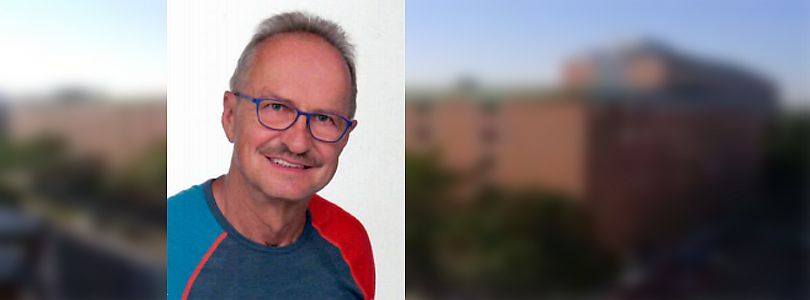Content
Bernd Antonius


„The AfEP had an organisational structure that can also be found at the patent office today, with a president, a vice-president and directorates general subdivided according to technical aspects. The Directorate General ‘Documentation’, responsible mainly for collecting and processing information concerning the state of the art, was very important.“
Former patent examiner at the AfEP and the DPMA
DPMA:What do you recall from the reunification and from the immediately following years?
Bernd Antonius:The president of the DPA at that time, Dr Erich Häußer, was definitely enthusiastic about Berlin. As far as he was concerned, the headquarters of the DPA would probably have been moved back to the future capital. But that’s not what happened. The decision of the Federalism Commission in 1992 led to a fresh start. The Jena sub-office was founded and the patent examination activities were concentrated at the headquarters of the DPA in Munich. It was clear to Dr Häußer that good prospects should be offered to the highly skilled and qualified employees of the Office for Inventions and Patents. It was initially also proposed to make the AfEP a kind of phased-out authority for the GDR patent documents – to be completed until 2010. Fortunately, this did not happen.
DPMA:And how did you personally experience this development?
Bernd Antonius:After we learned that we would only have a future in Munich, I inevitably had to accept what was lying ahead of me. What helped me was that the colleagues from Berlin who had to follow their jobs to Munich had very strong bonds. Such bonds are often also had in other expat communities all over the world: People know each other, they try to stay together and to provide each other with tips and advice. This very much helped get started in Munich. Some colleagues stayed in the south forever, while others went back to the Berlin area when they had reached the retirement age – to a certain extent, this is a question of money and depends on the family situation.
DPMA:Why did you become a patent examiner?
Bernd Antonius:After my studies, I applied for a job with the AfEP in Berlin and got it. At the Humboldt-Universität in Berlin, postgraduate studies were offered that employees in the patent departments of the GDR enterprises could pursue while working. At that time, these studies were also open to the patent examiners of the AfEP. In 1984, I finished these studies with a degree of IP engineer (patent engineer). What the basic studies had not dealt with was the knowledge of law concerning patents and trade marks.
In the late 1970s, the AfEP was extended considerably because there was a great need for patent examiners. The GDR industry intensified its attempts to operate on the global market, so more resources were needed to examine and grant patents.
DPMA:What principles did apply at the GDR’s Office for Inventions and Patents?
Bernd Antonius:Patents were clearly considered a part of the economic strategy and were an enormously important contribution to creating value. Since its establishment, the GDR had been facing two big problems: First, it was always short of foreign exchanges and thus had to offer outstanding products in international competition in order to generate any income at all. Second, it was – like the other states of the Eastern Bloc – affected by the Comecon embargo of the United States and had to reproduce inventions of the West which could not be simply purchased.
An example of this problem that many people still recall is the 1-Mbit chip, which the GDR government celebrated by running a big propaganda campaign in September 1988, i.e. at a time when American and Japanese companies were mass-producing 8-Mbit chips and the 16-Mbit generation was about to be launched...
DPMA:The innovators’ movement (Neuerer-Bewegung) played an important role in the GDR. What can you tell us about it?
Bernd Antonius:Well, it was not without reason that, as from 1965, the title of the monthly published by the AfEP since 1952 was "Der Neuerer". The innovators’ movement was a form of the scheme for employee suggestions and inventions; its aim was to use the knowledge accumulated in the enterprises to find technical solutions meant to improve the quality and profitability of production processes and products. The AfEP’s task was to unlock and, if possible, develop this potential. For this purpose, the AfEP also published the monthly.
DPMA:How was the GDR integrated into international relations and treaties?
Bernd Antonius:The GDR was generally a party to all important treaties and agreements. For the highly export-oriented economy of the GDR, this was essential to be considered a partner in international business at all.
That’s why there was an official representative at WIPO in Geneva. In most cases, the term of such representation was five years; after the five-year period, another colleague was given the opportunity to perform this task. I still recall one colleague who was closely involved in the work of the WIPO boards on the classifications. There was also a lively international exchange of patent specifications.
DPMA:In what are the AfEP and the DPMA similar?
Bernd Antonius:The AfEP had an organisational structure that can also be found at the patent office today, with a president, a vice-president and directorates general subdivided according to technical aspects. The Directorate General ‘Documentation’, responsible mainly for collecting and processing information concerning the state of the art, was very important.
And there was a secret division that was responsible for all inventions and patent procedures relating to military technology and other particularly sensitive fields of technology and that was subject to special safeguards. This can also be found at the DPMA today.
In the 1980s, the AfEP had approximately 600 employees, almost half of which were patent examiners. With roughly 50 employees, the trade mark and registered design areas were significantly smaller. This was also due to the minor role trade marks played in the GDR’s domestic economy.
Last updated: 10 December 2025

Not only protecting innovations
Social Media